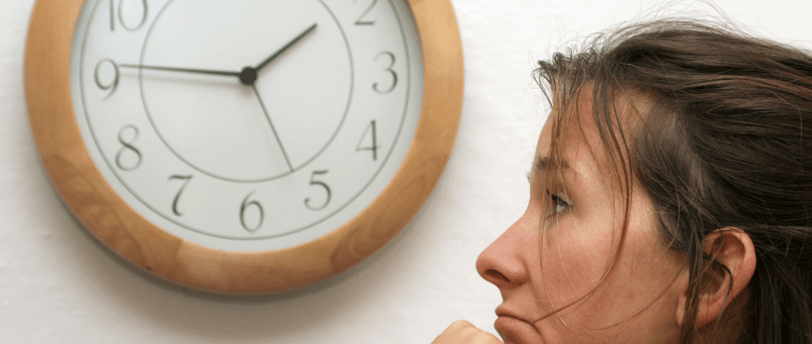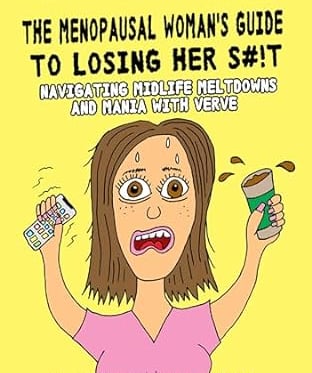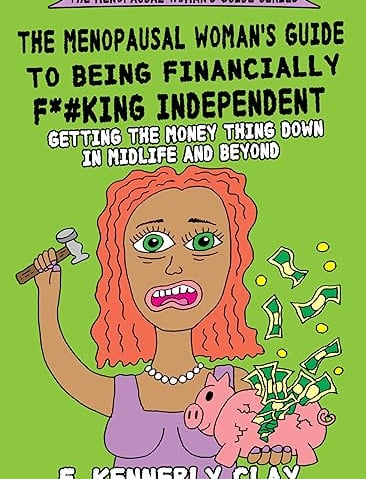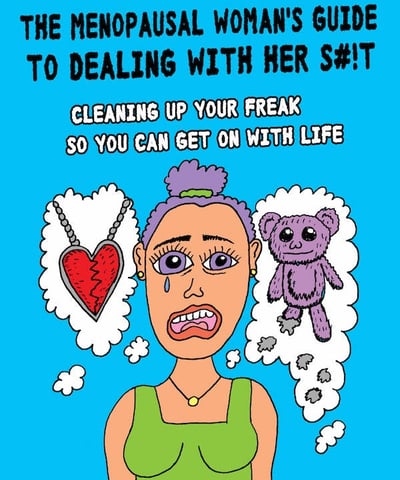Depression in Menopause: How Long Will This Last?
Menopause depression may feel like it lasts forever, but keep in mind that hormonal fluctuations are temporary. ✔️ Here's what to expect.
MENOPAUSAL SYMPTOMSMENOPAUSAL DEPRESSION
Kennerly Clay
5/22/20245 min read


How long can menopause depression last?
While this downward spiral of depression may feel never-ending, it's possible it will pass as the hormonal ride slows down (eventually).
Depression in menopause is a significant mental health issue that affects a large number of women, yet it remains under-recognized and often misunderstood. Unlike regular depression, menopause depression is closely linked to the hormonal changes, particularly in estrogen and progesterone, that occur during the menopausal transition. Talking about menopause and mental health is critical because understanding this link can help you find the support you really need.
My own experience of depression in menopause was triggered by chronic pain due to a car accident and feeling low due to body trauma while simultaneously being whammied with menopausal symptoms then slowly sinking into existential depression: an unbearable sense, on a daily basis, that nothing matters and I don't want to be "here" - as in, alive, on earth, living. The experience and weight of it was as though it would never end. I felt doomed to a life of low mood, energy and outlook
If you can relate to any of this, read on! The struggle is real - and I totally get it.
If you or someone you know is in crisis, please call 988, the Suicide & Crisis Lifeline in the United States.
Hormonal havoc and symptoms of menopause depression
Symptoms of menopause depression may include persistent sadness, anxiety, irritability, and a lack of interest in activities once enjoyed. While these symptoms may mirror regular depression, it's important to understand what's happening to your mind and body in menopause that can exacerbate your experience of depression. Not to mention, in mid-life we're often dealing with additional stressors like:
Work and career demands
Child-rearing or empty nesting
Caretaking of elderly loved ones
Relationship challenges
Oh, and there's also the fact we give way fewer fucks about just about everything in life.
Hormonal hell during menopause plays a pivotal role in this type of depression. Estrogen, for instance, has a protective effect on the brain by regulating the production of serotonin, a neurotransmitter that influences mood. As estrogen levels decline, serotonin production can become erratic, leading to mood swings and depressive episodes. Additionally, changes in sleep patterns, hot flashes, and other physical symptoms of menopause can deepen our feeling of depression.
I mean, who doesn't feel shitty when they can't sleep, they're sweating the bed all night, and have zero energy or brain power all day long?
I mean, who doesn't feel shitty when they can't sleep, they're sweating the bed all night, and have zero energy or brain power all day long?
How long can menopause depression last?
When you're going through it, you want answers, clarity, confirmation and guarantees. Unfortunately, the duration of menopause depression is not easily defined, as it can vary significantly from one individual to another. Generally, the menopausal years are between the ages of 45 and 55 for most women. And depression can kick up at any time during any of these phases:
Perimenopause - the years leading up to menopause, often from the mid-40s
Menopause - begins the year after you've had no menstrual period for 12 months
Postmenopause - everything that happens after menopause
Each stage has its own set of emotional challenges, depending on what's going on in your life and in your body, so how you cope with depression in menopause may evolve as you transition to post-menopause. Here's how depression can manifest during these stages and why the experience may differ for every woman.
How long does perimenopause depression last?
During perimenopause, which can begin several years before menopause, hormonal fluctuations are common. These fluctuations can lead to mood swings and depressive episodes. The length of perimenopause varies, typically lasting between four to eight years. For some women, depression may be a persistent issue throughout this entire period, while others may only experience sporadic bouts.
If it's any consolation, I thought menopausal depression would last forever. When you're going through it, it's as thought there's no end in sight and you feel like you'll never be happy, never be yourself again.
It's been several years now since I've had a menstrual period. I noticed the hormonal havoc that I was so accustomed to throughout perimenopause eventually subsided. I could actually feel that shit in my body! The mood evened out. And the combined efforts of talk therapy, antidepressants, and alternative treatments like ketamine therapy for existential depression really helped me during perimenopause and into postmenopause.
How long does menopause depression last?
As you transition into menopause, marked by the cessation of menstruation for 12 consecutive months, depression can either increase or stabilize. But be aware that the hormonal changes continue, which can exacerbate pre-existing mental health conditions or trigger new symptoms. In my case, I experienced "stabilization" - at least as stable as I'm capable of becoming. I don't have the extreme lows or the erratic moods, and the impending doom and gloom that ran my life for years has definitely subsided. Ten years into this shit, however, I still have "pangs" of depression and I sometimes want to jump out of my skin, I'm so agitated with the world around me.
So just be at ease with the idea that depression during this phase can range from a few months to several years, depending on your unique circumstances and mental health history. Keep doing things to take care of yourself and put yourself first.
How long does postmenopause depression last?
In postmenopause, hormonal levels stabilize, but depression may still be a concern for some women. While many may find relief as their bodies adjust to new hormonal norms, others may continue to struggle with depressive symptoms. The duration of postmenopausal depression can be influenced by various factors, such as genetics, lifestyle choices, and overall health.
Factors such as a family history of depression, stressful life events, and chronic health conditions can all contribute to the length and severity of menopausal depression. Additionally, lifestyle habits like diet, exercise, and social support networks play a crucial role in managing symptoms.
Sorry to say, there's no definitive timeline for how long menopause depression can last. Each woman's journey is unique, and understanding the individual nature of this experience is essential for effective management and support.
My best advice for any woman going through depression in menopause is to keep being proactive about your mental health. Talk to mental health professionals, join a support group, gab with your girlfriends, practice radical self-care, medicate with traditional and/or unconventional "drugs" - anything you can do to save your sanity while life feels particularly hard.
Wanna talk more about depression in menopause?
Books for women who are losing it in menopause
Mental Health
Losing your mind in peri/menopause?
The menopausal woman's guide series
Financial Health
Had enough of financial insanity?
Personal Growth
Triggers? Old stuff kicking up?
Related topics
Explore helpful articles, tips, and advice for women who are losing their shit in menopause.
Community
Stay Connected
© 2024. Eclectic Content, Inc. All rights reserved.






